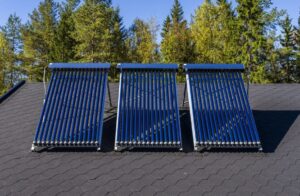Owning a home in Florida comes with a unique set of challenges, including the need for robust homeowners insurance coverage to protect against hurricanes, floods, and other potential risks. However, finding the right coverage without breaking the bank can be a daunting task. In this guide, we’ll walk you through some of the best ways to save money on homeowners insurance in the Sunshine State, without compromising on the protection your home deserves.
1. Shop Around for the Best Rates
Just like with any significant purchase, shopping around for the best rates is essential when it comes to homeowners insurance. Different insurance companies offer varying rates for similar coverage, so it’s in your best interest to obtain quotes from multiple insurers. We have 12 of the top-rated homeowner carriers in Florida, so we can compare quotes side by side, allowing you to make an informed decision about the coverage that fits your needs and budget.
2. Bundle Your Policies
Insurance companies often offer discounts if you bundle your homeowners insurance with other policies, such as auto insurance. Bundling can lead to significant savings, so it’s worth considering consolidating your insurance needs with a single provider.
3. Increase Your Deductible
A deductible is the amount you’re responsible for paying before your insurance coverage kicks in. By opting for a higher deductible, you can lower your premium. Just be sure that you can comfortably afford the higher deductible in case you need to file a claim.
4. Improve Home Security and Safety Measures
Installing safety and security features in your home can lead to reduced insurance premiums. This might include adding a security system, smoke detectors, fire alarms, storm shutters, and reinforced roofing. These measures not only enhance the safety of your home but also make it less risky for insurers to provide coverage.
5. Maintain a Good Credit Score
Believe it or not, your credit score can impact your homeowners insurance premium. Insurers often use credit-based insurance scores to assess the risk associated with insuring you. Maintaining a good credit score can help you qualify for lower rates.
6. Retrofit Your Home for Natural Disasters
Florida is susceptible to hurricanes, so fortifying your home against these disasters can lead to discounts on your insurance premium. Upgrading your roof to meet hurricane-resistant standards, reinforcing windows and doors, and ensuring your home’s structural integrity can all help in this regard.
7. Choose Actual Cash Value Over Replacement Cost
When selecting the coverage type, you might be offered the option of “actual cash value” or “replacement cost.” While replacement cost coverage pays to replace your belongings or repair your home at today’s prices, actual cash value coverage factors in depreciation. Opting for actual cash value coverage can result in a lower premium.
8. Maintain a Claims-Free History
Insurance companies often reward policyholders with a history of minimal or no claims. Maintaining a claims-free record can lead to discounts over time, as you demonstrate your commitment to taking care of your property.
9. Consider Flood Insurance Separately
Standard homeowners insurance policies typically don’t cover flood damage. Given Florida’s susceptibility to flooding, it’s worth considering a separate flood insurance policy. The National Flood Insurance Program (NFIP) provides flood coverage that can be more affordable than seeking it through private insurers.
10. Review and Adjust Your Coverage Regularly
As your circumstances change, so do your insurance needs. Periodically reviewing your homeowners insurance coverage can help you identify areas where you might be over-insured or under-insured. By adjusting your coverage to reflect your current situation, you can avoid paying for unnecessary coverage and ensure you have adequate protection where it matters.
In conclusion, while Florida’s unique climate and geography pose certain challenges for homeowners insurance, there are several effective strategies to save money without compromising coverage. By shopping around, taking advantage of discounts, improving safety measures, and making informed choices about coverage options, you can safeguard your home while keeping your budget intact. Remember, it’s essential to strike a balance between affordability and the protection your home deserves.




